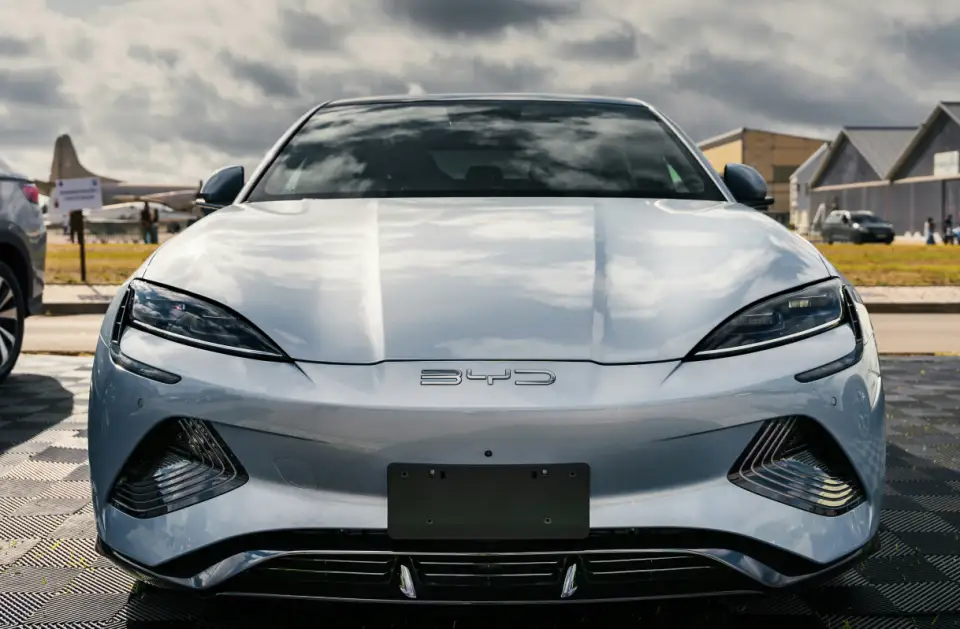Press Conference Grandly Launched: A Central Enterprise Holds an Industry Breakthrough Conference at China Media Group for the First Time In the 800-square-meter studio at the new headquarters of China Media Group, there were no gorgeous stage settings, only test data flowing on the big screen and the figures of researchers; there were no song and dance performances, only the simple narrations of the guests and rounds of heartfelt applause. On July 18, the press conference "Chinese Standards: Breaking Dawn and Setting Sail — The Journey of the Birth of China's First Diesel Engine Oil Standard" centered on "standards" and took "stories" as the thread, becoming a special and solemn milestone in the journey of independent innovation in China's lubricants industry. This was the first time a central enterprise had brought a press conference on a major industry breakthrough to a national media platform, telling the story of China's manufacturing industry's independent breakthrough through the most authentic experiences.
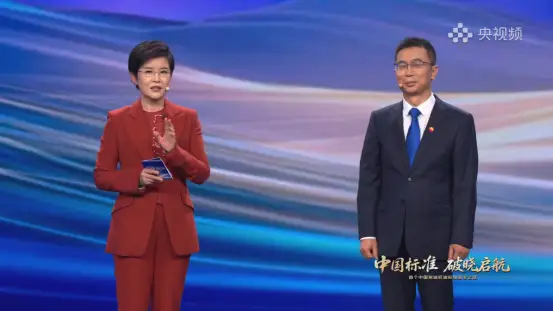
From "Following" to "Independence": A Standard Revolution Led by Central Enterprises "China is the world's largest producer and seller of automobiles, yet it has long relied on European and American lubricant standards. It's like forcing Chinese engines into 'ill-fitting foreign standards', which is not only ill-fitting but also hides risks," said Ma Zongli, Executive Director and Party Secretary of PetroChina Lubricant Company, pointing directly at the industry's pain points at the press conference. To obtain the most solid data, the testing team traveled to various parts of the country, from the extreme cold of -40°C in Mohe, to the extreme heat of 50°C in Turpan, and to the Qinghai-Tibet Plateau at an altitude of 5,000 meters, shouldering the "national responsibility" as the "national team." As the "national team" of central enterprises, PetroChina Lubricant Company (Kunlun Lubricants) took the lead in this standard
revolution. Ma Zongli introduced that to formulate standards truly suitable for Chinese diesel engines, the team, in conjunction with major domestic automobile enterprises, established the first independent bench evaluation procedures in Lanzhou, accumulating tens of millions of kilometers of driving data and tens of thousands of hours of bench data. "Science, rigor, and replicability are the commitments of the national team to the industry," he said, reflecting the central enterprise's responsibility for national energy security — achieving a full supply-chain localization in the entire industrial chain, from base oil refining to core additive research and development.
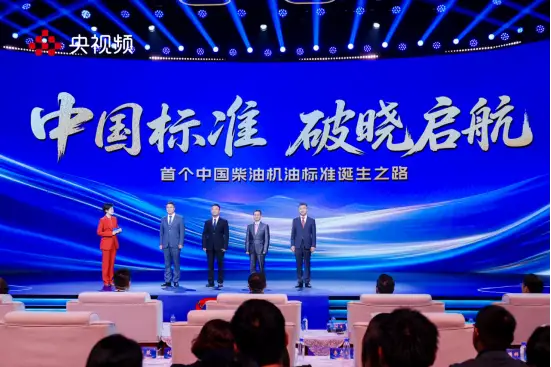
Real Answers from the Roads: Verifying Chinese Standards with Chinese Stories
"In 2016, we worked side by side with Kunlun Lubricants. Based on the heavy-duty truck CA6DM3 engine, we established the first bench evaluation specifications in Lanzhou, achieving an independent innovation breakthrough in the R&D field," recalled Liu Jiangwei, Vice President of the Commercial Vehicle Development Institute of FAW Jiefang, as he took the stage. "We conducted tests on the problem that engine oil is prone to deterioration due to extremely high internal temperatures of the engine during plateau heavy loads and summer climbing. After 400 hours of testing, D1 engine oil maintained stable performance in various environments, just like putting a 'super protective suit' on the engine." Tao Jun, Director of the Process Research Institute at Dongfeng Commercial Vehicle Technology Center, stated that under high-load conditions such as heavy-duty truck climbing and gear shifting, the engine injects a large amount of fuel, leading to insufficient combustion, increased soot, and more sludge, like a "sandstorm" blowing inside the engine. "We repeatedly tested under extreme working conditions with a soot content of 7%. Facts have proven that engine oil meeting the D1 standard operates well in the harshest environments, effectively ensuring the lubrication and performance
of the engine. In various road conditions, the drivers who tested it all said, 'It has power.'" From heavy-duty trucks to light commercial vehicles, the applicability of the standard has been verified one by one. Sun Ze, a power system expert from Anhui Jianghuai Automobile Group, introduced the urban distribution scenario: "Frequent starts and stops, a large number of cold starts, and after-treatment regeneration can easily cause unburned fuel to mix into the engine oil, like adding water to 'blood.' D1 engine oil has passed rigorous tests, extending engine life, reducing maintenance times, and lowering usage costs." Li Zhijie, Assistant President of Weichai Power, brought good news to heavy-duty truck drivers: "Under low-speed and high-torque conditions, D1 engine oil can extend the oil change interval from 60,000 kilometers to 120,000 kilometers, with extreme tests reaching 140,000 kilometers, allowing drivers to make several more trips." These stories collectively outline the "Chinese genes" of the D1 standard — it is not an illusion in the laboratory but a real answer derived from China's roads.
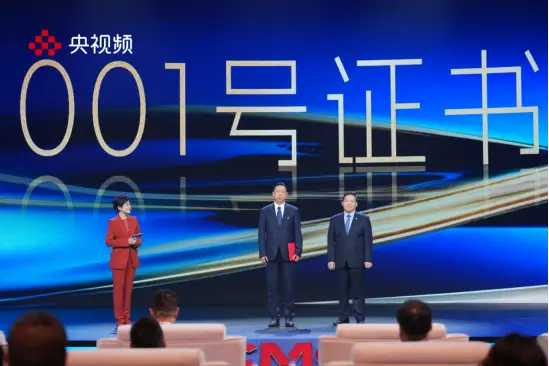
Seventy Years of Inheritance: The Independent Original Aspiration of Central Enterprises "From the establishment of China's first professional lubricant research institute in the 1960s to the current implementation of the D1 standard, it is the perseverance of three generations over 70 years," said Jin Peng, a senior technical expert at PetroChina, summarizing and elevating the short film "Three Generations of Perseverance" meticulously produced by China Media Group, which sent multiple filming teams to museums, laboratories, and archives across the country, interviewing many experts, scholars, and frontline workers to create several exquisite short films. In this short film, the images of the older generation researchers manually recording data in simple laboratories, the determined eyes of second-generation engineers breaking through technological blockades, and the figures of today's young teams testing in extreme environments complemented each other, earning prolonged applause from the audience. "The first generation started from scratch, the second generation voiced the call for independence,and our generation has achieved comprehensive localization," Jin Peng said, reflecting the central enterprise researchers' inheritance of their original aspiration. Li Shusheng, Vice Chairman and Secretary-General of the Chinese Society for Internal Combustion Engines, further revealed that this standard revolution brought together the efforts of 13 engine enterprises, 23 lubricant enterprises, 6 laboratories, and 2 universities, involving over 400 people, consuming 60,000 hours of bench tests and 3,300 tons of fuel, and an investment of nearly 200 million yuan. "The biggest challenge was building trust, making the industry believe that China can formulate world-class standards," and the leading role of central enterprises was the core support for this trust.
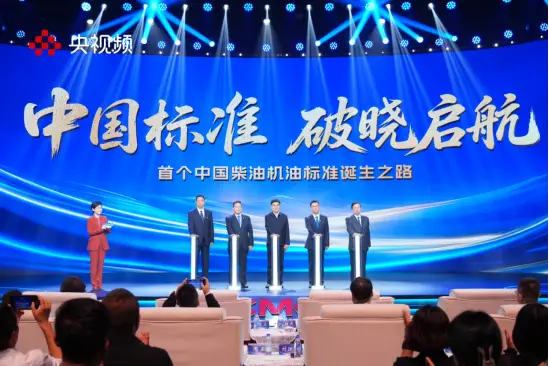
Setting Sail on a New Journey: A Chinese Commitment Spreading from China Media Group to the Whole Country The climax of the press conference was an interactive session across space. As the guests pressed their palms on the electronic handprint platform, the big screen in the 800-square-meter studio of China Media Group displayed images of eight cities — frontline employees in warehouses and experimental bases in Beijing, Shanghai, Guangzhou, Chengdu, Lanzhou, Dalian, Daqing, and Karamay lined up neatly, shouting slogans in turn: "Chinese standards, breaking dawn and setting sail," "Kunlun guardianship, central enterprise responsibility," "Standards build trust, resonating across thousands of miles," "Independent innovation, national strength," and "Kunlun Lubricants : Fearless in innovation, silent in performance." "With 70 years of inheritance and three generations of forging ahead — Kunlun Tianwei D1 diesel engine oil is officially launched!" declared Ma Zongli, Executive Director and Party Secretary of PetroChina Lubricant Company, marking the entry of China's first independent diesel engine oil standard product into the market. This is not an end but a new starting point for central enterprises to fulfill their commitments: as Academician Cao Xianghong said in the short film, based on D1, a "Chinese independent standard family for lubricants" covering diesel, gas, gasoline, and new energy power will be built, ensuring that every Chinese engine uses suitable "Chinese blood." This special press conference held at China Media Group concluded with a simple yet powerful declaration. People understood its profound meaning: the responsibility of central enterprises is never a high-profile declaration but, like lubricants, a force that silently supports the progress of national industry. From the spotlight of China Media Group to the operation of tens of millions of engines, the independent path of Chinese standards has set sail.


